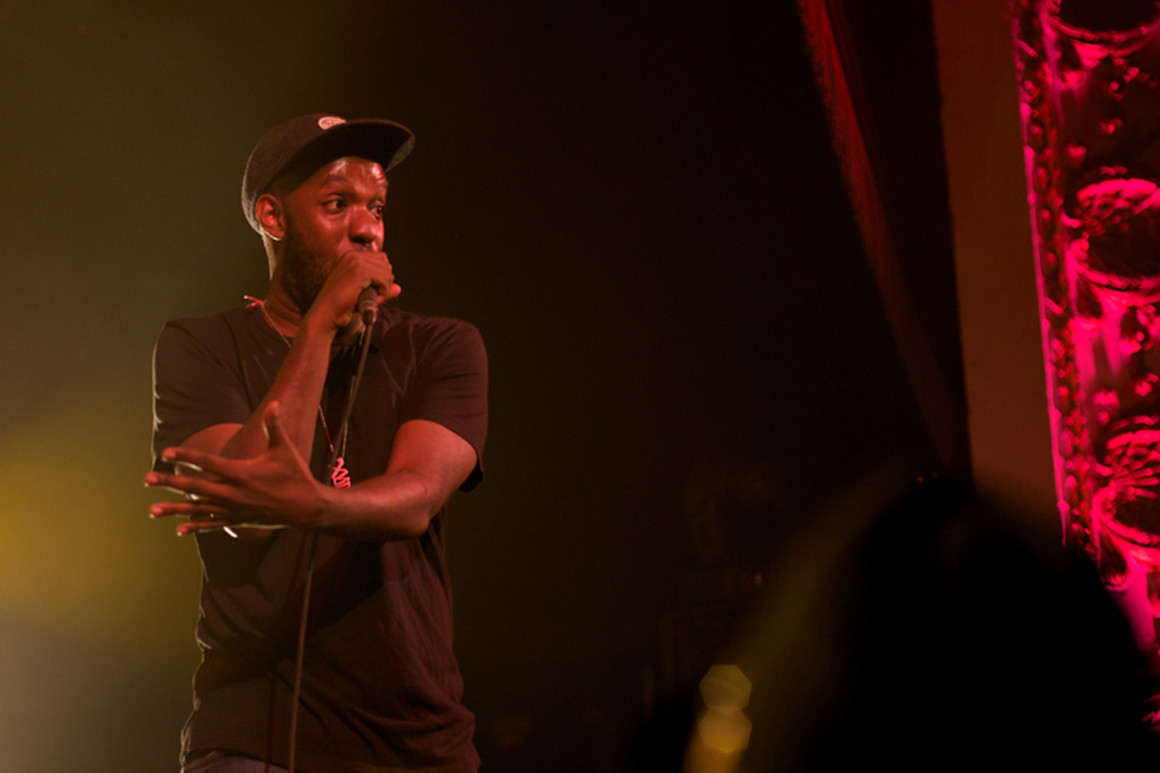
Shad on being a first-generation Canadian
By Tendayi Moyo, June 12, 2014 —
Canadian artist Shadrach Kabango, better known as Shad, has been making noise in hip-hop since 2005. In 2011, Shad took home the Juno Award for Rap Recording of the Year, edging out fellow Ontarian Drake. Shad’s fans are accustomed to his thoughtful lyrics that explore his experience as a first-generation Canadian. We talked to Shad about the upbringing that helped him become a hip-hop mainstay.
The Gauntlet: Just to set this up, you were born in Kenya in ‘82 but you moved to London, Ontario, when you were pretty young?
Shad: Yeah, I was just a year old. My family is from Rwanda but there was a conflict there in 1959. So [my parents] both actually left Rwanda way back when they were kids, but for generations and generations, yeah, we’re Rwandans. [My parents] lived all over East Africa.
My older sister was born in Uganda and then I was born in Kenya. [My parents] were refugees, basically, their whole young life until we came to Canada. That was the first time they gained citizenship.
When you were growing up, did your parents instill Rwandan culture and values along the way?
To great extents [Rwandan values] were the values at home. That was important. I think that’s partly Rwandan culture and partly just their own personal values. They kind of made sure that was there and was part of the upbringing.
You would have been around 12 years old when the Rwandan genocide happened. How did you wrap your head around what was happening at that age?
I couldn’t, really. The strange thing was that my relationship to [Rwanda] at the time was a little bit abstract. We had a lot of family that passed away, but all of them were people I had never met. At 11 or 12 years old, you don’t exactly understand. My family would go to political rallies in Ottawa to rally the government before the genocide happened.
But again, I’m 10. I don’t exactly understand. I just know that it’s important and it’s happening in this country that my family is from.
I’m trying to get an idea of how your family dealt with being overseas while this was going on.
I don’t have the best memory of it. I remember it was stressful and difficult for my parents and for a lot of people in the community. At the same time there’s a strange resilience — or maybe just my own obliviousness — but life went on. I guess it sort of has to. But, yeah. It was definitely stressful and traumatic for a lot of people in our community. The mental health issues continue.
I read an interview you did where you mentioned that you thought multiculturalism in Canada might be regressing. Do you think we’re resting on our laurels?
I think so. The thing with values is you have to progress those values. You have to fight for them and you have to actively work to live into them more fully. I think the big overarching value in society is that all human beings are equal. That’s something we kind of say and this mantra we have. But I think we have to live into that more fully. What does that actually look like? What does that actually mean? We start in our country with things like access to healthcare for everybody or access to education for everybody.
Okay, but you can’t just stop there. You have to keep progressing. Because we still have people that live on the street. We still have people that are underprivileged. We still have so many situations in this country that don’t show the fullness of what that idea — that all people are equal — could mean.
For many, many years the idea that’s underlying is, no, we’re not equal. We have to continue to move towards that ideal. We’re not there. Just because we say it, doesn’t mean we’re there.
What does that look like?
I think it really, truly, looks like equality. People living in a way where nobody is left behind. Everybody is taken care of. And [people enjoying] the inherent dignity and value of life that comes with that. Just people being respected, truly, and not just lip-service. And I do think we’ll get there. Because if that principle is true — that all people are equal — the ideas will have their time. At a certain point they can’t be denied if it’s true. And I think that it is.
For your fans at the U of C, when is the next time you’ll be in town?
Oh, man. No plans yet. But probably in the fall.
